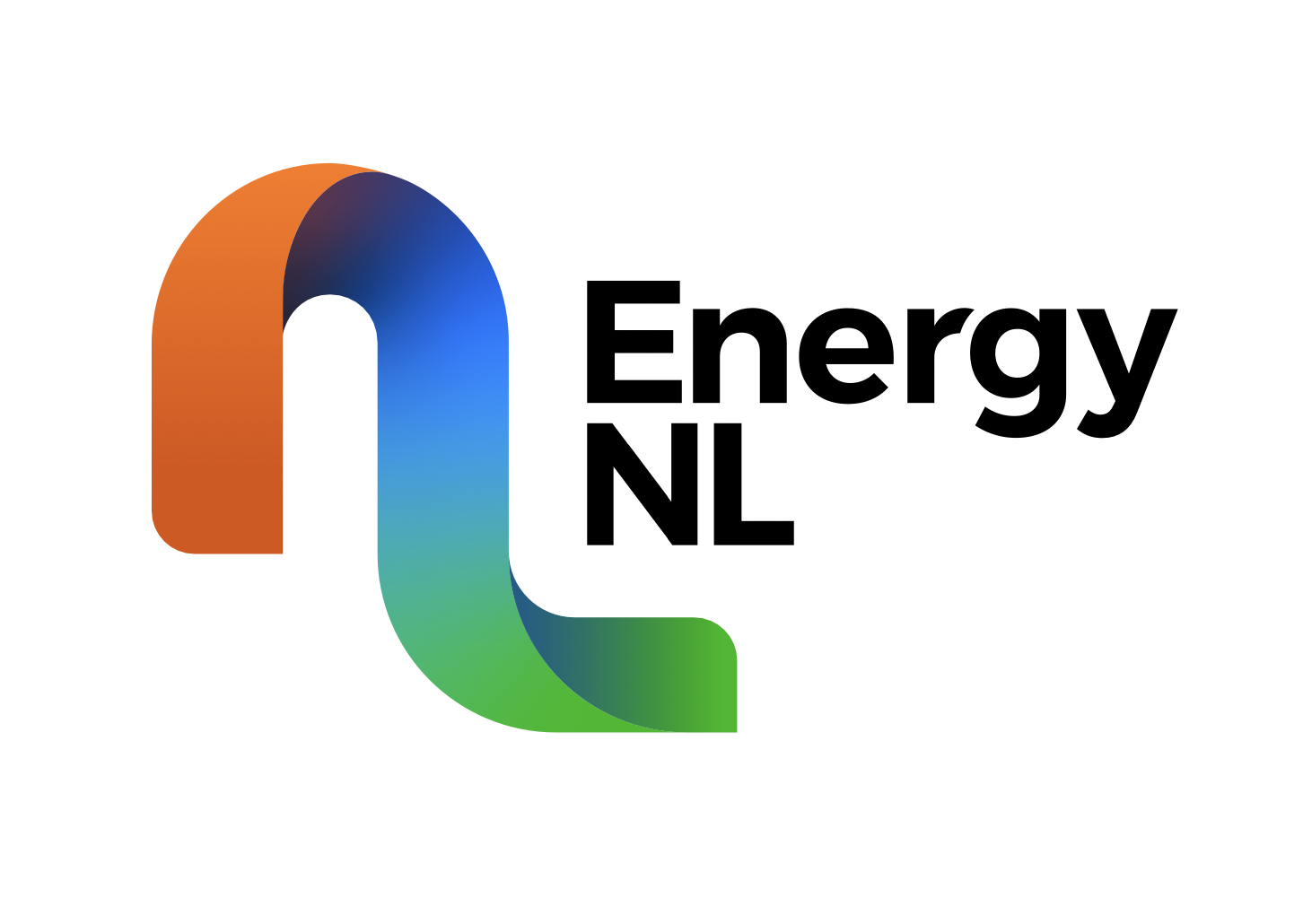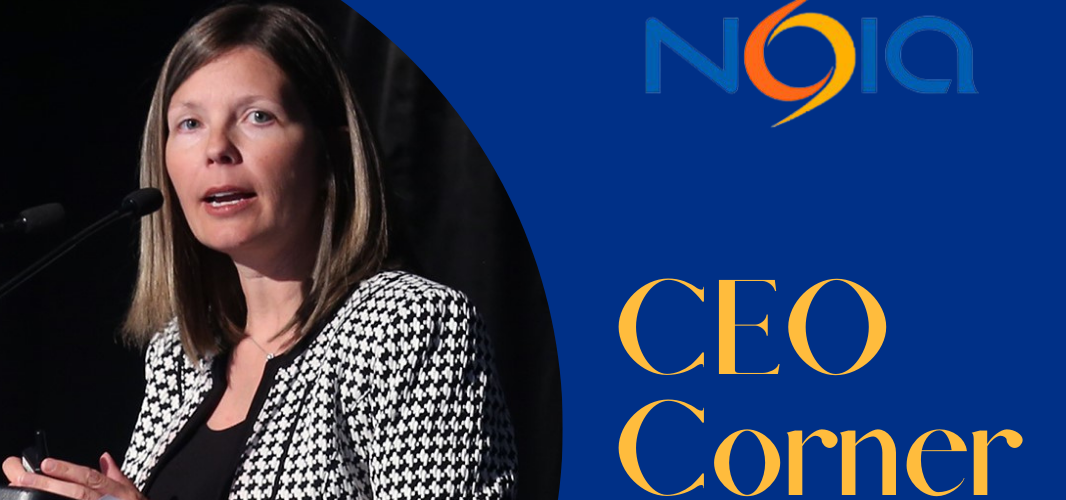Noia has launched a new blog, CEO Corner, as a way for CEO Charlene Johnson to communicate and connect with members. The blog will provide Charlene with the opportunity to discuss important and relevant issues about our offshore oil and gas industry and share information about Noia’s advocacy efforts.
The inaugural edition of the CEO Corner can be found below:
There is no doubt 2020 was an unprecedented year, and as a result, the offshore industry today looks very different than it looked in January of 2020.
As we rang in the new year in 2020, the Newfoundland and Labrador offshore oil industry was thriving. The future looked bright as Husky Energy forged ahead with its West White Rose Extension project offshore Newfoundland and Labrador and there was also anticipation that an announcement was on the horizon by Equinor for the development of Bay du Nord. Those were new projects to go along with our four producing fields.
But no one could have predicted what transpired in early March as a global pandemic and an oil price war played havoc, essentially incapacitating our industry and the world.
Throughout much of 2020 we would hear news of offshore projects being deferred.
It began mid-March, when Equinor announced the Bay du Nord project would be deferred due to low oil prices. North Atlantic Refining Ltd. announced it would stop refining oil due to COVID-19 concerns and began to transition to standby mode. CNOOC also announced it was delaying its 2020 Flemish Pass exploration drilling campaign in response to the COVID-19 pandemic. Another significant blow to our industry was both the West Aquarius and Transocean Barents exiting offshore Newfoundland and Labrador, leaving us without exploration vessels for the first time in recent memory. The Transocean Barents has left to explore offshore Norway and further develop their resources while the West Aquarius is cold stacked at Bull Arm.
Newfoundland and Labrador’s first offshore installation, Hibernia, ceased drilling operations in May and the Terra Nova FPSO was taken off-field over the summer and moored in Conception Bay, later to be moved to Bull Arm while Suncor evaluated next steps.
In the fall came more bad news when Husky Energy announced it was going to review all operations in Atlantic Canada, including the 60% complete concrete gravity structure for West White Rose.
Operators and Noia member companies had to make tough financial decisions, including laying off thousands of employees and rolling back wages.
All this news was devastating to the offshore industry and for the better part of 2020, Noia was focused on a comprehensive advocacy campaign that centered on achieving support for programs that would offer companies incentives to perform work offshore Newfoundland and Labrador. After many, many months the Federal Government announced the allocation of $320 million for an offshore oil and gas industry recovery fund, of which $32 was set aside specifically for the supply and service sector. While it was not exactly what we had been asking for as this money could not be used for exploration or equity, this funding should help our industry get people back to work.
The provincial government subsequently established an oil and gas industry recovery task force, co-chaired by Karen Winsor and Bill Fanning, two industry veterans, and we look forward to receiving their report and recommendations which should make our industry globally competitive.
As well, $38 million in support for the Hibernia oil platform and $41.5 million to help save the stalled West White Rose extension project was announced. Further, an offer of up to $175M to Suncor and its partners for the asset life extension program of the Terra Nova FPSO was announced. This offer is contingent on a commitment by Suncor and its partners to match the government contribution, and to commit to a long-term production plan for the Terra Nova. All sides have until March 31, 2021 to formalize an agreement.
The Provincial Government also established a new offshore exploration initiative which will provide companies with an incentive to drill more wells in the best prospects offshore Newfoundland and Labrador. It is an important policy measure that will allow all future bid deposit forfeitures to be reinvested as received, potentially resulting in an injection of hundreds of millions of dollars in support of growth in our offshore industry. In addition, Noia will continue our advocacy for a development incentive similar to the Atlantic Investment Tax Credit.
It was an extremely rough year, and while there is still a long road to recovery, there have been some signs that the worst is likely behind us.
Global oil prices have been showing significant signs of resurgence as vaccine rollouts continue and the reality of a post-pandemic recovery becomes more within reach. Recently, Brent rose above $67 barrel.
CNOOC is set to drill an exploration well in the Flemish Pass this spring, with work slated to occur between April and June 2021 and run for about 90 days. There are also a number of other potential exploration programs on the horizon with seven projects from six operators receiving environmental approval, including BHP, our newest entrant, and BP, the licence holder for Cape Freels, along with Equinor, Chevron, ExxonMobil, and Husky. As an industry, and more so as governments, we need to employ measures to encourage these companies to start their exploration programs as quickly as possible.
As well, recent activity related to Bay du Nord, including discoveries at the Cappahayden and Cambriol wells and an update by the C-NLOPB to the Petroleum Resources and Reserves of the Harpoon well, give us reason to be optimistic.
I am also excited about the work we are collaborating on with the Newfoundland and Labrador Environmental Industries Association (NEIA) and the Oil and Gas Corporation to explore using renewable energy to help lower our already low carbon impact, an area we are global leaders. We commissioned studies which tell us it is technically feasible to power future offshore facilities with power from our onshore electricity grid and from offshore wind; we know our province has an abundance of hydroelectric power and wind. Such action would substantially lower our carbon footprint, which is of great interest to global investors, operators, governments, and the people of our province.
And probably the surest sign that better things are to come is the sheer resiliency I continue to witness time and time again with our members and our industry.
As we look towards the weeks and months ahead, Noia will continue its important advocacy work on behalf of our members and industry. We have been working hard planning events to bring our members together and our conference committee is already planning Conference 2021. While this year’s conference may look different, it will still offer the exceptional value and content you have come to expect from Noia.
Despite the circumstances of the past 12 months, I remain optimistic for the future of our industry. I encourage members to reach out with ideas to move us forward as an organization and an industry, especially with suggestions for how we can enhance the value of your Noia membership.
As we strive towards a full recovery and those brighter days ahead, let’s continue to innovate and collaborate so we can reach our tremendous potential!
Stay well.
Charlene
—
Issued by Noia on March 4, 2021.






